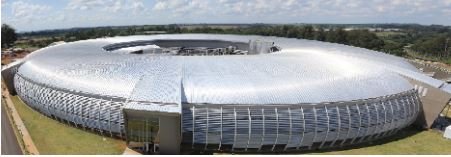Central Bank of Brazil reduces Selic rate to 4.5%
The Central Bank of Brazil reduced the Selic interest rate from 0.5% to 5%, in line with market expectations. This is an additional reduction by the Brazilian Institute since October 2016, when the reference rate was 14.25%.
The 5% rate represents the lowest historical low since the beginning of Selin’s determinations in 1986.
Inflation in the last 12 months under control of 3.27% and GDP forecast above 2% for 2020.
First signs of recovery in the Brazilian market, with inflation under control and GDP forecast, which expects growth to double by 2020.
Regionally, however, there are already situations that show an increase in GDP in 2019 of up to 3%.
It is important to remember that the 10 largest urban concentrations in Brazil represent around 43% of the national GDP, namely: São Paulo, Rio de Janeiro, Brasilia, Belo Horizonte, Porto Alegre, Curitiba, Campinas, Salvador, Recife and Fortaleza.
The metropolitan region of Campinas leads GDP growth
A survey by the Seade Foundation released Tuesday (13) shows that the metropolitan region of Campinas accumulated growth of 58.5%.
of gross domestic product (GDP) between 2002 and 2018, with an average annual increase of 2.9%, well above the results of the state of São Paulo in the same period, with 43.1% and 2.3%, respectively.
S&P improves ranking in Brazil
Standard & Poor’s (S&P) rating agency increased the outlook for the Brazilian public debt rating from stable to positive.
The positive outlook indicates that the agency may increase the country’s ranking in the next two years. Currently, S&P provides BB’s ratings to Brazil, three levels below investment grade, to ensure that the country does not run the risk of defaulting on public debt.
In a statement, S&P said that Brazil is adopting reforms to reduce the budget deficit. In addition, the fall in basic interest rates, which are at the lowest levels in history, helps to control public debt.
Research in Brazil: the Sirius particle accelerator from Campinas

Opened in late 2018, the Sirius Project is the largest and most complex scientific infrastructure ever built in Brazil, with approximately 68 thousand square meters.
Sirius is a particle accelerator, for the generation of synchrotron light. The shine allows the development of various organic and inorganic materials, such as proteins, viruses and metal alloys. The research carried out with Sirius will benefit several economic sectors, from agriculture to oil extraction.
